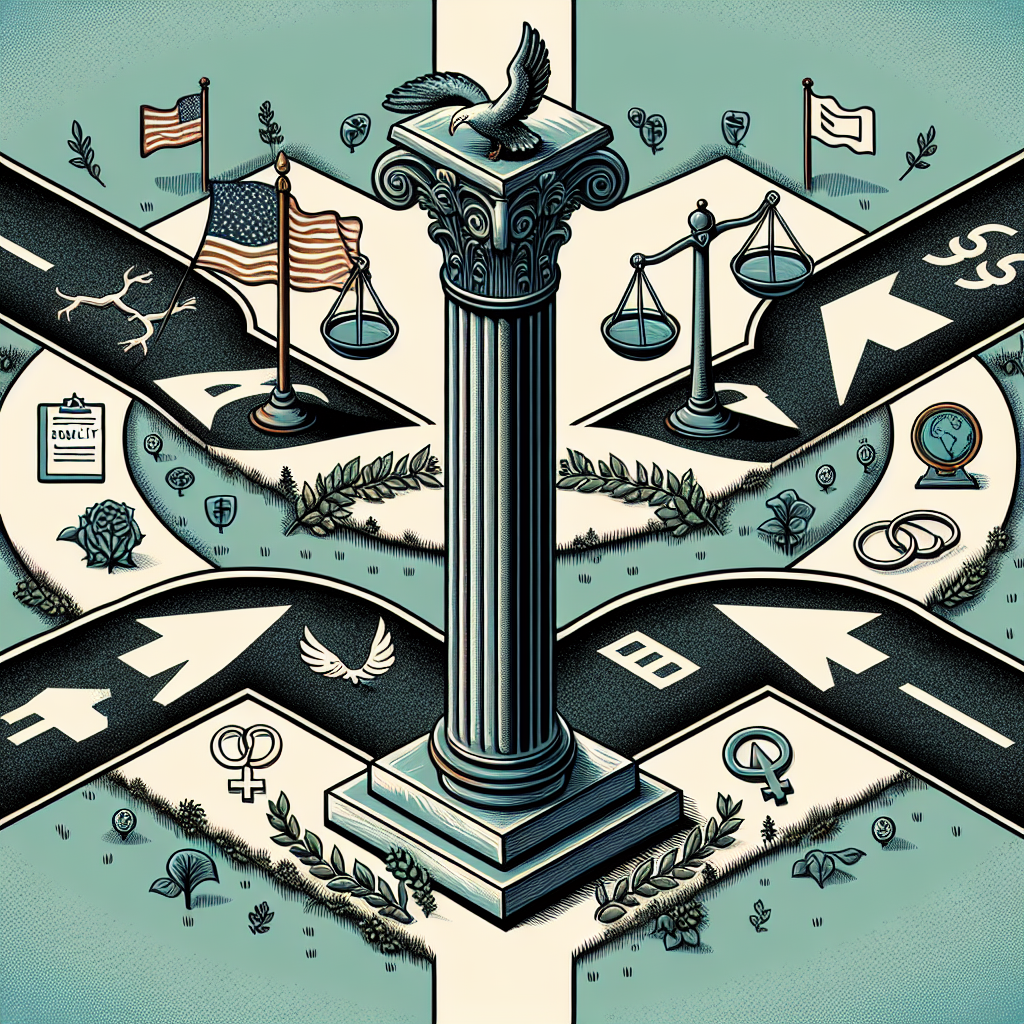The Intersection of Libertarianism and Social Justice Movements
Libertarianism and social justice movements may seem to occupy opposite sides of the political spectrum, but their intersections present a complex yet fascinating dialogue. Understanding how these two ideologies can coexist and complement each other can shed light on broader human rights issues and promote meaningful societal change.
What is Libertarianism?
Libertarianism is a political philosophy that emphasizes individual liberty, free markets, and minimal government intervention. Adherents advocate for personal responsibility and the belief that individuals should have the freedom to make choices about their lives, as long as those choices do not infringe upon the rights of others. Key tenets include:
- Economic Freedom: A belief in free-market capitalism and minimal regulation.
- Civil Liberties: Strong emphasis on personal freedom concerning speech, lifestyle choices, and privacy.
- Non-Aggression Principle: A moral stance against initiating force or coercion against others.
Understanding Social Justice Movements
On the other hand, social justice movements focus on advocating for equality and combating systemic inequalities based on race, gender, class, and more.
Key elements include:
- Equity: Ensuring that resources and opportunities are distributed fairly among all societal groups.
- Advocacy: Mobilizing communities to challenge institutionalized injustices and push for policy changes.
- Awareness: Raising consciousness about issues such as discrimination, privilege, and the socio-economic disparities affecting marginalized groups.
Common Ground Between Libertarianism and Social Justice
While it may seem like libertarianism and social justice are at odds, there are areas of significant overlap:
1. Individual Rights
Both ideologies champion the importance of individual rights. Libertarians advocate for the defense of personal freedoms, while social justice movements seek to protect the rights of marginalized individuals. This common ground highlights an essential American value: the belief that everyone should have equal rights and opportunities.
2. Advocacy Against Coercion
Libertarians oppose government coercion in the form of regulations that infringe upon individual freedoms. Similarly, social justice advocates work against systemic coercion that disproportionately affects marginalized communities. The shared goal of promoting autonomy can serve as a unifying principle.
3. Economic Opportunities
Libertarians promote economic freedom and opportunity through free markets. However, social justice movements argue that without a level playing field, economic systems can perpetuate inequality. An intersectional approach that emphasizes both economic freedom and measures to correct systemic inequities can foster a more equitable society.
Challenges in the Intersection
Despite the promising overlap, tensions often arise in discussions at this intersection:
1. Perspectives on Government Intervention
Libertarians generally oppose government intervention, while social justice movements often advocate for policy changes that require government action to dismantle systemic inequities. This fundamental disagreement can complicate cooperative efforts toward common goals.
2. Prioritization of Issues
While both groups advocate for justice and fairness, they may prioritize different issues. Libertarians may focus on civil liberties and government overreach, while social justice advocates highlight systemic racism, gender inequality, and economic disparity. The challenge lies in finding a common agenda that addresses the most pressing issues for both camps.
Building Bridges: Collaborative Efforts
To navigate these complexities, both libertarians and social justice advocates can explore collaborative frameworks.
1. Mutual Education
Promoting open dialogues and educational efforts can help each side better understand the other’s concerns and motivations. By hosting forums, discussions, and workshops, both groups can work toward increased empathy and shared strategies.
2. Fostering Coalitions
Creating coalitions around specific issues can help bridge divides. For instance, both groups can unite against policies that infringe upon personal freedoms or target specific communities.
3. Focusing on Common Goals
Focusing on overarching values such as freedom, fairness, and justice can foster a productive dialogue. Establishing clear, mutual goals can aid in creating a unified approach to tackling systemic issues affecting society as a whole.
Conclusion: A Path Forward
The intersection of libertarianism and social justice movements involves a complex interplay of ideas, principles, and priorities. While there are challenges, the potential for collaboration is significant. By embracing dialogue, education, and shared goals, libertarians and social justice advocates can work together to promote a society that is both free and just for all. Acknowledging the nuances of each perspective can lead to more comprehensive solutions to pressing societal issues, ultimately benefiting individuals and communities across the spectrum.
Share this content:












Post Comment